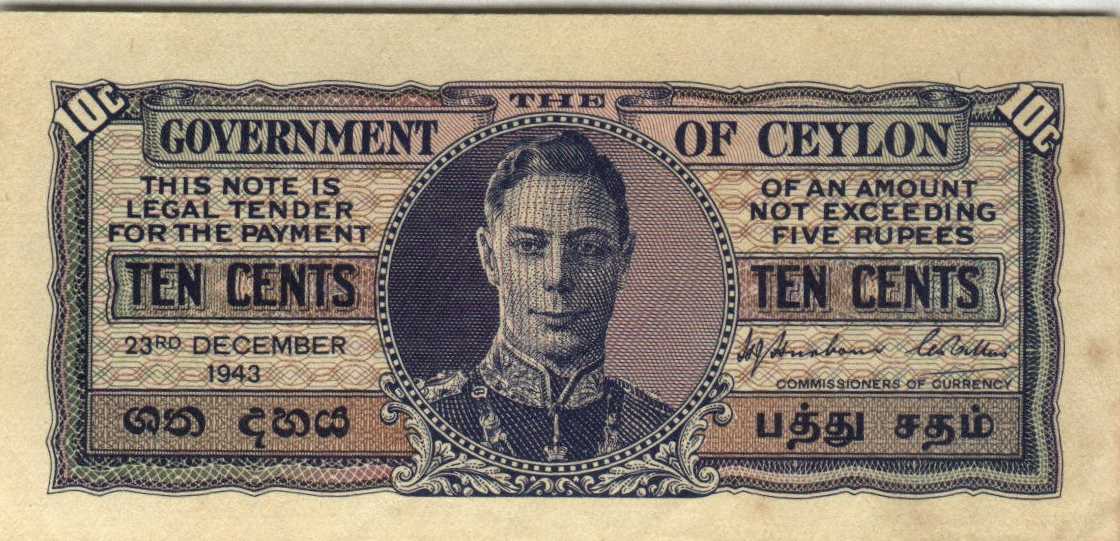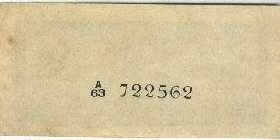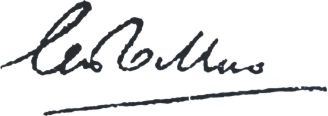


| 
|
| LK:SCWPM #043 | |
The Notes are 95 by 44 mm i.e. 3 3/4 by 1 3/4 inches.
Printed by India Government Security Press.
Water-mark: None on paper of Unknown manufacture
Front : Blue and Multi color.
The portrait of King George VI at center, the words TEN CENTS
on both sides. The value 10c in figures at angle on the top two
corners on either side of THE GOVERNMENT OF CEYLON in 2
lines. Just below the words in 3 lines continued on both side of
portrait THIS NOTE IS LEGAL TENDER FOR PAYMENT OF AN AMOUNT NOT
EXCEEDING FIVE RUPEES. Date on left in 2 lines, and 2 signatures
of the COMMISSIONERS OF CURRENCY on right. The value
ශත දහය in Sinhala on left, and
பத்து சதம் in Thamil on right.
Reverse : Blank except for Serial Number.
| Date on BankNote | Signatures of Commissioners of Currency | First Serial # | Mintage in K | |
| 1ST FEBRUARY 1942 | H.J. Huxham |  C.H. Collins | A/1 000001 | 30000 |
| 14TH JULY 1942 | A/31 000001 | 30000 | ||
| 23RD DECEMBER 1943 | A/61 000001 | 14000 | ||
The notes were demonetized with all notes with denominations Rs 10 and lower dated before 1950 December 31st on 1955 August 26th and ceased to be legal tender with effect 1956 August 31st. Of the 74 Million note printed with in 3 dates in 1942 and 1943, 4.98 million were in circulation when the Central Bank took over and about 4.9 Million remain unsurrended ether lost or among banknote collectors.
The 10 cent Note ceased to be legal tender in 1956 but continued to be mentioned as Rs 0.5 Million within currency in circulation in Annual Report of the Central Bank and remained in error in that Statistical Table tabulated in a column till 1974 and as a footnote all the way till 2004 when it was pointed out by me to the then Superintendent of Currency.
The details of this issue are from Sri Lanka Currency of Recent Times 1938-1985 T. M. U. Sallay, 1986 Colombo:Central Bank of Sri Lanka.
All of these WWII fractional currency notes were only legal tender for payment of amounts less than Five Rupees. Maybe it was the lack of security features that made the Currency Board impose this limit.
The next denomination 25 cent Note also has portrait at center. The higher denominations 50 cent and all other Ceylon currency notes of both King George VI and Queen Elizabeth have the portrait on left.
The notes were scanned at 300 dpi and displayed at 50 dpi.
The AU 1943 note(above) is from a set of Ceylon WWII currency
my father had saved.